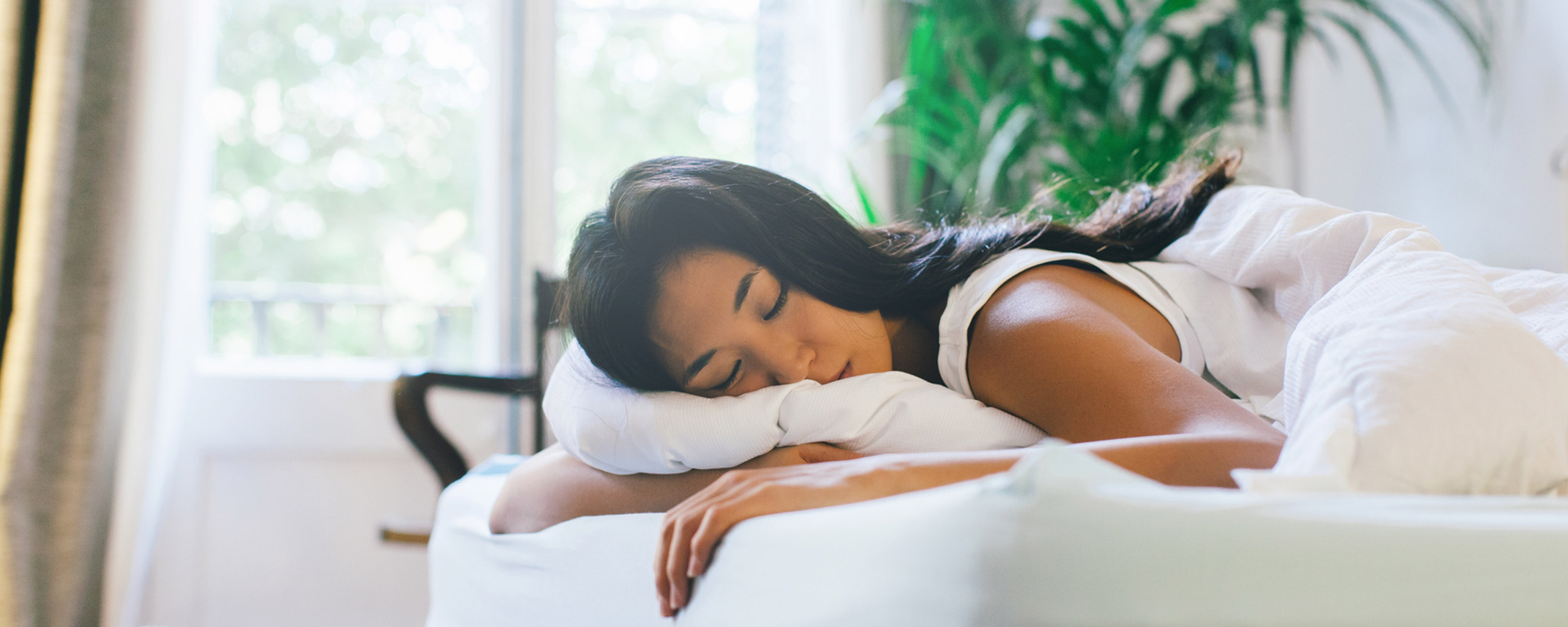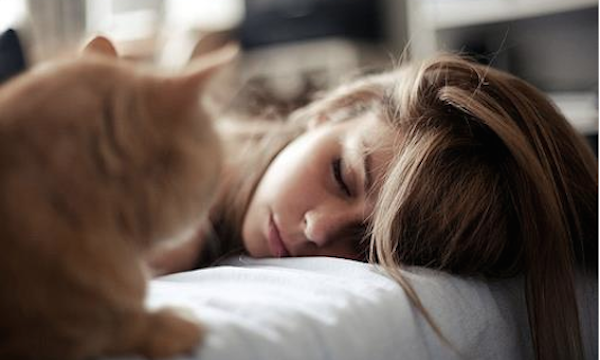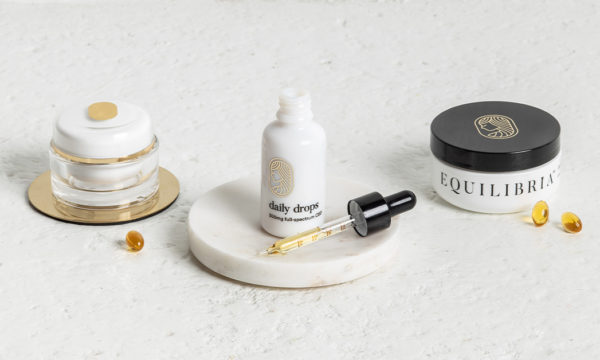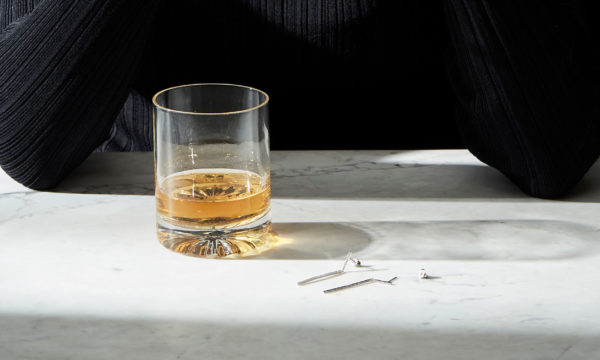How We Really Get to Sleep
June 10, 2016
For a quality night’s sleep, we all know what we’re supposed to do. Stop looking at screens after dinner, don’t drink caffeine past lunch, and go easy on the alcohol. Don’t eat too late; drink camomile tea. Don’t take work to bed with you. Meditate. Exercise, but not late in the evening. Leave your phone in the kitchen. Take deep breaths, go to bed at the same time every night, get up at the same time every morning, and make sure the bedroom is cool, dark, and quiet. Aim for seven hours, eight if you’re lucky.
If you follow these directions, drilled into our heads by magazines, self-help publications, Doctor Oz, the Mayo Clinic, and a TED talk and accompanying book by Arianna Huffington, then congratulations on your impeccable sleep hygiene. The board of health should mount a big letter “A” in your bedroom window. I bet you feel fantastic. Chances are, you also eschew carbs, have a well-used Vitamix, and are reading this at your treadmill desk. I applaud you.
If you don’t, welcome to the club, which consists of everyone I know. We fall into two camps: those who don’t need to trick themselves into conking out (i.e. people who just fall asleep at night, like the diurnal mammals we are), and those who can’t, no matter what they do. The former is normal, and the latter is a particularly unfortunate crowd of which I am a member. We meet weeknights at 3:16am to flop around in our sheets and stalk the halls of our apartments.
Over the past decade, sleep has pulled up a chair next to diet and exercise at the summit of Basic Things Humans Should Do Better According to Science. Mark my words, the 12-hour sleep binge will soon be akin to juice cleansing. Studies show that sleep deprivation, like obesity, will kill you. The good news is that unlike obesity, it’s pretty easy to fix. Or so you’d think.
A quick poll of my female peers proved that, while most of them can sleep without too much trouble, they each have their own tactics—all of which fall outside the standard medical recommendations. My friend Katherine, a magazine editor, slathers on “no less than three face creams” and insists on fancy, silky pajamas “to feel like a princess sleeping on 12 mattresses.” Almost everyone confessed to watching TV at night, despite its spot on “ban before bedtime” list; some admitted to puttering around on the computer or playing phone games—at the same time. Additional sleep-inducing rituals, in no particular order: snuggling with pets, reading, “a tiny bit of pot,” making to-do lists, writing in a journal, hot showers, spooning a cashmere hot water bottle, “a swig of whiskey,” knitting, Xanax.
“I know it’s bad, but having a glass or two of wine right before bed works really well for me,” says Claire, a physical therapist with two young kids. “Sometimes I’ll have one in bed while I scroll through Facebook.” For Grace, a brand consultant, warm chocolate has a similar effect: “I usually heat up a Snack Pack pudding in the microwave, or a cookie, or some other preservative-ridden food that could survive the apocalypse.” She “almost never” has trouble falling asleep, but occasionally wakes up around 3am—at which point she inexplicably shifts to the opposite end of the chocolate temperature spectrum. “I’ll get up and eat a few frozen peanut butter cups. I freeze them so I won’t eat the whole bag.” Meanwhile, a doctor friend of mine swears by a drug called Trazodone, which she takes every night. (I tried it once, and woke up feeling like my brain was full of wet cotton, rendering full sentences cumbersome. But to each her own.)
Personally, I’m a big fan of sleep medication. I’ve been an insomniac since I can remember, and I’ve tried everything—yoga, exercise, therapy, meditation, the works. At age five, I’d spend nights staring out my window, our neighbors’ houses dark, counting cars as they swished by under the yellow street light (I could never get my head around the sheep thing). As a tween, I’d wake up at 4am at sleepaway camp and wait for dawn, too exhausted to move but unable to drift into the cloud layer of slumber that floated around the edges of my brain. I wish I could say I’ve gotten my best ideas during my half-awake hours, or at least engaged in quality introspection, but I typically just worry and ruminate. When I was younger, I’d fret about algebra tests, cross country races, and the politics of middle school lunch tables; in more recent years, I’ve replayed mundane conversations, working myself into a catatonic tizzy behind my closed eyelids. Sure, I have nights when sleep arrives on time, radiant and glowing like a guest of honor walking into her own party. But when it bails on me, I resort to pills. Feel free to judge, but I know I’m not alone—a recent report showed that 8.5 million Americans use prescription sleep aids, with women outnumbering men by several percentage points.
I first dabbled in sleep meds the way most people try drugs: in college. As we studied for exams one year, I bemoaned my sleeplessness to a roommate, who was kind enough to hand over a few peach-colored crumbs of Xanax; that night, I slid off into a cool mist of relief. Another friend gave me a Klonopin, which knocked me out so thoroughly that I fell asleep on top of my sheets. When a doctor prescribed me Ambien, it changed my life. At last, I had a worthy weapon to bring to the battle every night, and I no longer dreaded the twilight zone of half-awakeness that I’d spent so many nights trying to claw out of. I began to sleep firmly and confidently, nestled in my covers like a felled oak. I even gained a reputation for sleeping in, which was thrilling.
Depending on stress levels, I’ve cycled in and out of various sleep medications for all of my adult life, always under the supervision of a doctor (and for the record, I’ve never taken more than prescribed, nor have I wanted to). Call it a crutch, but for me, the assurance that I won’t have to wrestle through more than the occasional sleepless night is tremendously comforting. Most doctors will tell you that the prescription has a placebo effect—just knowing that the pills are there helps to quell sleep anxiety, making you more likely to doze off unassisted. My friend Lucy, an IT consultant, has never even touched the Ambien in her bedside drawer—its presence is enough. (Beware the wee-hour pill-popping, though. Another friend once did so groggily in the dark, only to realize after tossing all night that she’d taken Immodium by accident, rendering her both tired and constipated.)
Almost everyone I know wishes they could sleep a little bit more (with the exception of parents with young children, who wish they could sleep a lot more). Which begs the question: If we all know that we’re supposed to disconnect and pass out earlier, and we want to do it, why aren’t we? Sure, a good night’s sleep takes time and commitment, but you’ll presumably make up for those precious minutes with increased vim and vigor the next day. Maybe it’s really because drinking wine and watching TV is generally more fun than meditating and light-proofing your window blinds. And isn’t the whole point of sleep to be able to enjoy our waking hours, to stretch them to their fullest? Ironically, the enemy of sleep might be the very things that it allows us to do—the reasons to get out of bed in the first place.
And when it’s not, there’s always a pill—or a frozen peanut butter cup. Whatever gets the job done.









